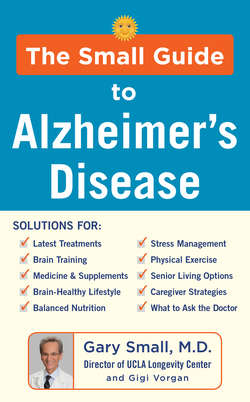Читать книгу The Small Guide to Alzheimer's Disease - Gary Small - Страница 18
На сайте Литреса книга снята с продажи.
Medicines That Worsen Memory
ОглавлениеIt’s important to bring a list of all the patient’s current medications to the appointment with the doctor. Over the years, patients tend to change doctors or have multiple practitioners caring for them, so taking an inventory of all the medicines can not only be revealing; it can also lead to improved cognitive abilities and overall better care. If the medication regimen is disorganized or complicated, I encourage families to bring the actual medication bottles to the appointment so I can review them systematically with the family. This is very important because so many medications can trigger cognitive symptoms, and sorting out what might be causing side effects or drug interactions can have an important impact on the patient’s outcome.
Usually patients with cognitive complaints are older, and as we age we are more likely to take multiple medications. Approximately 10 percent of patients presenting with suspected dementia are experiencing a medication side effect that is contributing to the cognitive decline. Several medicines used to treat psychiatric illnesses, sedating drugs, or narcotic agents can disrupt cognition as well. Histamine H2 receptor antagonists (e.g., famotidine or Pepcid, cimetidine or Tagamet) for stomach problems, cardiac medications such as digoxin and beta-blockers, corticosteroids, nonsteroidal anti-inflammatory agents (e.g., naproxen or Aleve, ibuprofen or Motrin), as well as antibiotics can all cause confusion.
Did You Know?
Although memory lapses are the most common reason that patients see a doctor for cognitive changes, other symptoms can trigger that initial doctor visit as well. For 23 percent of patients, personality changes lead to an evaluation, while 15 percent complain about difficulties with complicated tasks.
